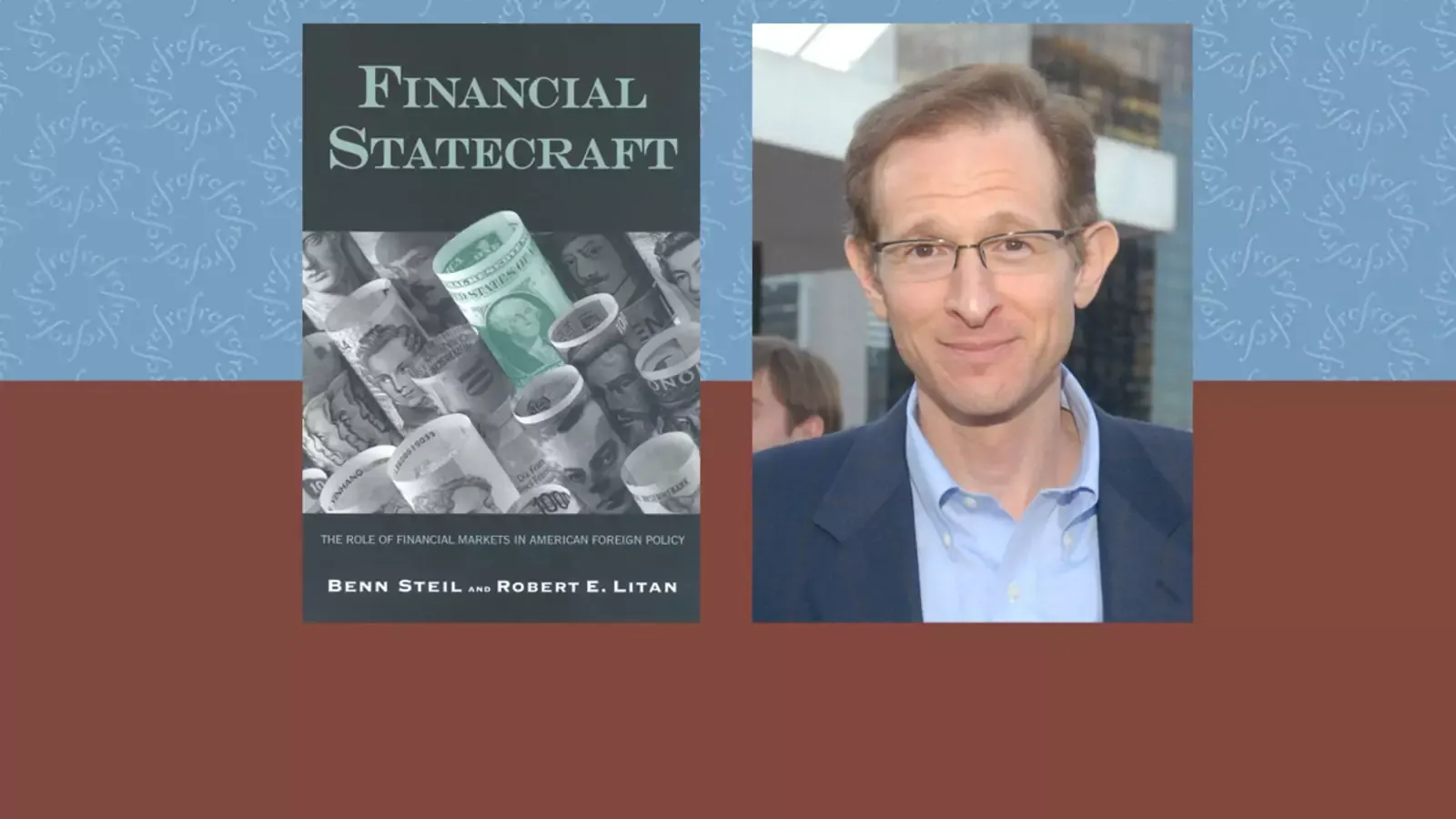Financial Statecraft

Introduction
In this book, CFR Senior Fellow Benn Steil and Robert E. Litan explore the efficacy of American efforts toward what they have coined "financial statecraft," or those aspects of economic statecraft directed at influencing international capital flows. Teaching notes by Dr. Steil.
Summary
Financial Statecraft is a valuable text for graduate and advanced undergraduate courses in political economy and international relations. Written by two economists, the book exposes students to rigorous critical thinking about economic problems in the foreign policy realm.
The structure of Financial Statecraft provides instructors with a useful rubric for organizing classroom debate. The book comprises a microeconomic and macroeconomic section covering three topics each:
PART I: Microeconomics
Banking and Foreign Policy
Finance and the "War on Terror"
Capital Markets Sanctions
PART II: Macroeconomics
The Security Dimensions of Financial Crises
The Economics of Financial Crises
Global Capital Flows and American Foreign Policy
Discussion and Essay Questions
Microeconomics
Discussion Questions
1. Consider the following hypothetical scenario. You are the U.S. secretary of state. Members of Congress are concerned about a Chinese company, ChinaTech, which is negotiating with the government of Iran to provide it with technology having important military applications. These members are pressing hard for ChinaTech to be barred from raising capital in the United States or from listing on a U.S. stock exchange. Prepare a memo to the president of the United States discussing the considerations involved in determining whether he should support these efforts or oppose them, and your view as to the position he should ultimately take. Additional Reading:
- O'Sullivan, Meghan L., Shrewd Sanctions: Statecraft and State Sponsors of Terrorism, (Brookings, 2003).
2. Discuss the basic economic reasons which may justify governments setting minimum capital standards for banks. Then discuss the political challenges that arise when governments try to agree on international capital standards for banks operating cross-border, and the economic problems that political considerations can give rise to. Finally, discuss the approach you believe the United States should take in formulating international capital standards, explaining your economic and political reasoning. Additional Readings:
- Basel II: International Convergence of Capital Measurement and Capital Standards: A Revised Framework (November 2005).
- Shadow Financial Regulatory Committee, Reforming Bank Capital Regulation, AEI Press, 2000.
3. Describe the sorts of changes that have taken place in the global economy over the past 25 years which might explain why the United States is trying to use control over financial markets and institutions in its foreign policy arsenal. Highlight the areas where you believe that financial statecraft is and is not promising. Explain your reasoning, giving some examples from recent history. Additional Readings:
- O'Sullivan, Meghan L., Shrewd Sanctions: Statecraft and State Sponsors of Terrorism (Brookings, 2003).
- Wolf, Martin, Why Globalization Works (Yale University Press, 2004).
Macroeconomics
Discussion Questions
1. From the perspective of its own national interest, should the United States be concerned about currency crises abroad? In your answer, discuss the types of security, diplomatic, and economic concerns that may be relevant. Give some specific examples from recent history. Additional Reading:
- Rubin, Robert E., and Jacob Weisberg, In an Uncertain World (Random House, 2003).
2. Throughout most of human history, money was gold or another valuable commodity, or bills and coins backed by them. Since the early 1970s, however, the world's monetary system has been comprised of about 200 "fiat" currencies, mostly national, unbacked by anything with intrinsic value. Discuss the key economic and political issues involved for Latin American countries in deciding whether it is sensible to maintain their own national fiat currencies, or to "dollarize," as Panama, Ecuador, and El Salvador have done. In your response, discuss how Argentina's 2001 currency crisis influences your thinking. Additional Readings:
- Calvo, Guillermo, Emerging Markets in Turmoil: Bad Luck or Bad Policy? (MIT Press, 2005).
- Eichengreen, Barry, and Ricardo Hausmann, eds., Other People's Money: Debt Denomination and Financial Instability in Emerging Market Economies (University of Chicago Press, 2005).
- Levy Yeyati, Eduardo, and Federico Sturzenegger. eds., Dollarization: Debates and Policy Alternatives (MIT Press, 2003).
- Salvatore, Dominick, James W. Dean, and Thomas D. Willett, The Dollarization Debate (Oxford University Press, 2003).
3. When the International Monetary Fund is approached by a government to help it avoid a currency crisis, what are the key considerations that should influence the Fund's decision making? Discuss the tensions between economic and political considerations, and short-term and long-term consequences. Additional Readings:
- Blustein, Paul, And the Money Kept Rolling in (and Out): Wall Street, the IMF, and the Bankrupting of Argentina (Public Affairs, 2005).
- Blustein, Paul, The Chastening: Inside the Crisis that Rocked the Global Financial System and Humbled the IMF (Public Affairs, 2001).
- Caprio, Gerard, James A. Hanson, and Robert E. Litan, eds., Financial Crises: Lessons from the Past, Preparation for the Future (Brookings, 2005).
- Dooley, Michael P., and Jeffrey A. Frankel, eds., Managing Currency Crises in Emerging Markets (National Bureau of Economic Research, 2003).
- Roubini, Nouriel, and Brad Setser, Bailouts or Bail-Ins? Responding to Financial Crises in Emerging Economies (Institute for International Economics, 2004).